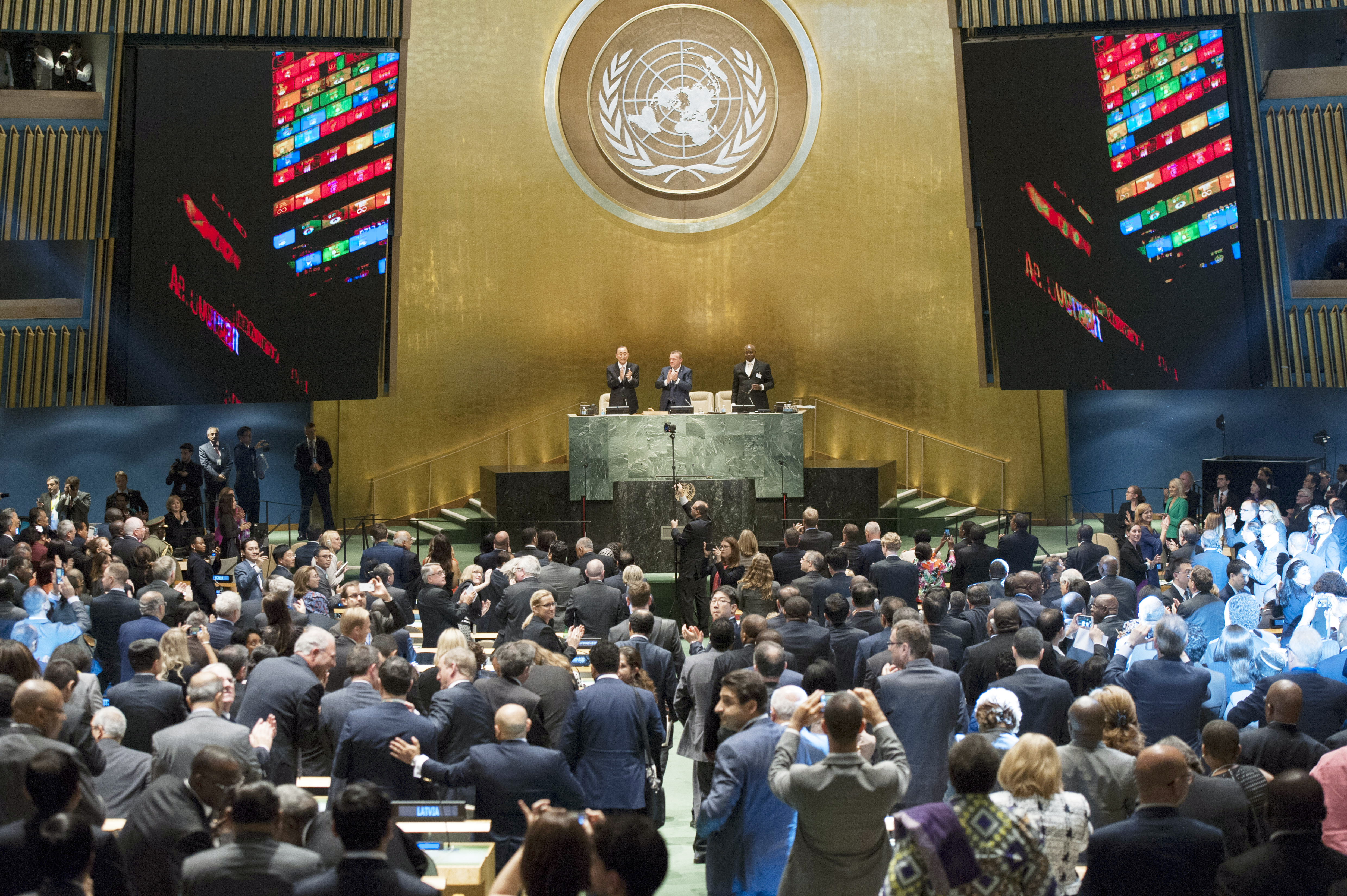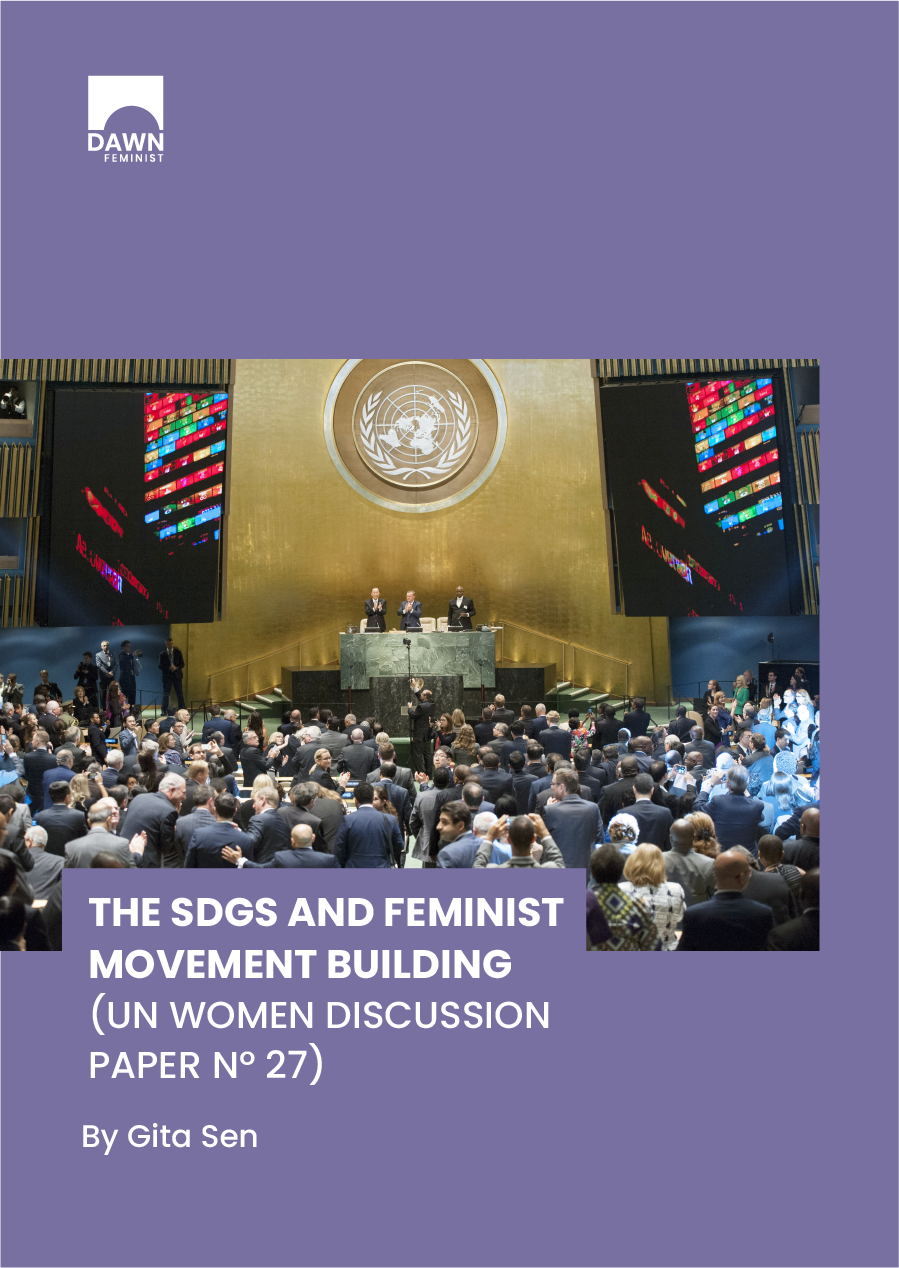
Author: Gita Sen, Public Health Foundation of India and DAWN
Publisher: UN Women, discussion paper series
Date: December, 2018
With the endorsement of the SDGs by UN Member States in September 2015, a critical phase of decision-making for global and national development agendas over the next 15 years has ended and a new one has begun. This paper argues that it will require considerable preparation as well as focused and agile advocacy by feminist organizations, if we are to learn from the gains and limitations of the Millennium Development Goals’ processes of the previous 15 years.
The paper draws on the author’s and DAWN’s experiences of feminist engagement with United Nations processes. It makes the argument that there are three fundamental drivers of whether and how women’s organizations can participate effectively in shaping policies and monitoring their implementation. These drivers are the (i) issues and environment, (ii) institutions and (iii) processes. The paper applies this to examine how feminists have engaged with the negotiation and formulation of the Sustainable Development Goals (SDGs) over the last few years.
It focuses on feminist engagement beginning with the preparations before 2012 for the 20th year review of UNCED, winding through the Cairo +20, Beijing +20, and the post-2015 agenda processes, until the formal approval of the SDGs at the UN General Assembly in September 2015.
Looking at the entire period from 1970 to 2015, the period of the 1970s was possibly one such synergistic phase, but it may have been the only one we have experienced in recent decades. In the phases succeeding the 1970s, at least one and often more of the drivers have been unfavourable.This contextual analysis for the period from the 1970s up to 2010 illuminates a central argument of the paper, namely that feminist movement building is not a simple volitional act but is enmeshed in the fluxes and changes of its external environment and institutions.
The feminist movement is no stranger to adverse economic, social and political environments. Many of the current cohorts of feminists came of age in the mid-1980s and 1990s when neoliberal economic and social policies and ideologies were gaining ground. Since then, the world has grown increasingly fierce and difficult, with many opponents and structures inimical to advancing women’s human rights. Much of the public debate around the SDGs has taken place in a context of weakening multilateralism, as well as attempts by some governments to roll back women’s human rights and gender equality. Not only SRHR but other core elements of the gender equality agenda—such as the recognition and policy implications of unpaid ‘care work’ and women’s rights to property and decent work—have been heavily contested, as have tax justice and the importance of an enabling macroeconomic environment at global and national levels.
Although feminists can justly be proud of having survived the most complex negotiations processes of recent times, there were also weaknesses that must be corrected. The paper argues that the ability of feminist organizations to hold their own in this fierce world, to defend human rights and to advance economic, ecological and gender justice requires not only clarity of vision and a track record of analysis and advocacy but also stronger communications skills, greater organizational resilience and effectiveness, and the ability to build and nurture effective alliances in which younger people play strong roles.
This paper was produced for UN Women’s flagship report, “Turning promises into action: Gender equality in the 2030 Agenda for Sustainable Development”, to be released as part of the UN Women discussion paper series.
Read the full paper by Gita Sen: Discussion-paper-The-SDGs-and-feminist-movement-building-en

